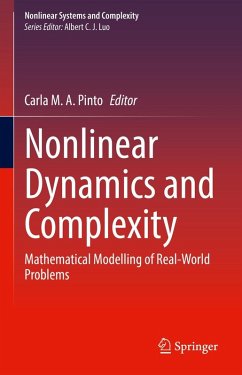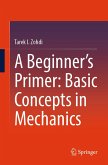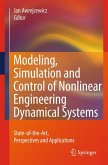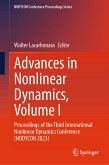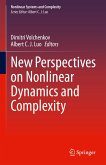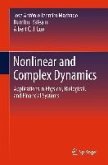This book collects a range of contributions on nonlinear dynamics and complexity, providing a systematic summary of recent developments, applications, and overall advances in nonlinearity, chaos, and complexity. It presents both theories and techniques in nonlinear systems and complexity and serves as a basis for more research on synchronization and complexity in nonlinear science as well as a mechanism to fast-scatter the new knowledge to scientists, engineers, and students in the corresponding fields. Written by world-renown experts from across the globe, the collection is ideal for researchers, practicing engineers, and students concerned with machinery and controls, manufacturing, and controls.
Hinweis: Dieser Artikel kann nur an eine deutsche Lieferadresse ausgeliefert werden.
- Illustrates methods for finding chaos from periodic motions;
- Includes applications to nonlinear physics and nonlinear engineering;
- Maximizes understanding of differential-invariant solutions, impulsive differential equations, chaos, and order.
Dieser Download kann aus rechtlichen Gründen nur mit Rechnungsadresse in A, B, BG, CY, CZ, D, DK, EW, E, FIN, F, GR, HR, H, IRL, I, LT, L, LR, M, NL, PL, P, R, S, SLO, SK ausgeliefert werden.
Hinweis: Dieser Artikel kann nur an eine deutsche Lieferadresse ausgeliefert werden.
Es gelten unsere Allgemeinen Geschäftsbedingungen: www.buecher.de/agb
Impressum
www.buecher.de ist ein Internetauftritt der buecher.de internetstores GmbH
Geschäftsführung: Monica Sawhney | Roland Kölbl | Günter Hilger
Sitz der Gesellschaft: Batheyer Straße 115 - 117, 58099 Hagen
Postanschrift: Bürgermeister-Wegele-Str. 12, 86167 Augsburg
Amtsgericht Hagen HRB 13257
Steuernummer: 321/5800/1497
USt-IdNr: DE450055826
Bitte wählen Sie Ihr Anliegen aus.
Rechnungen
Retourenschein anfordern
Bestellstatus
Storno

